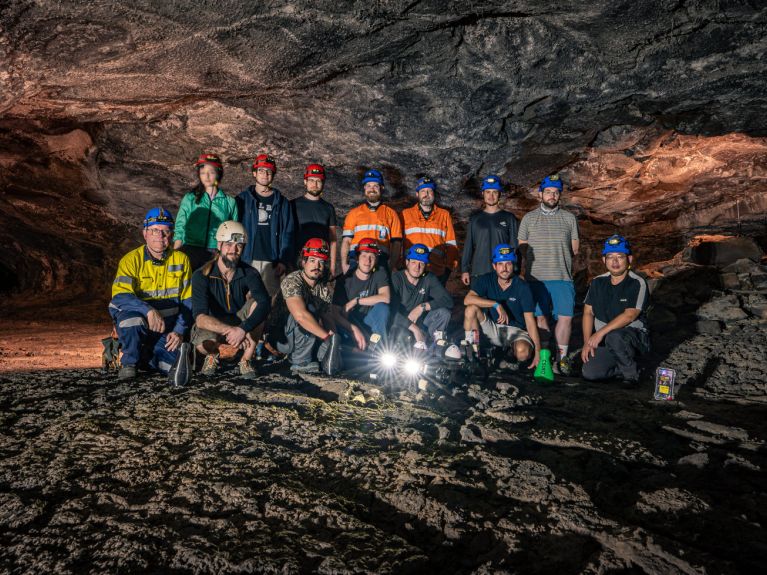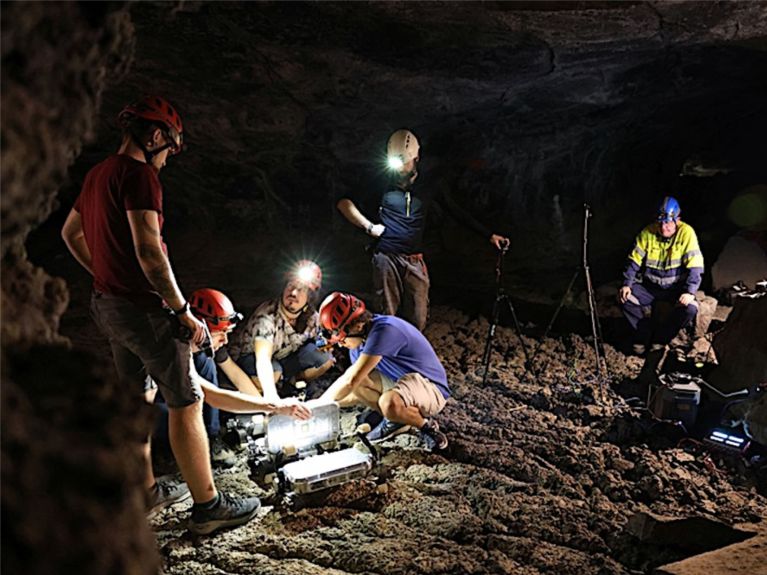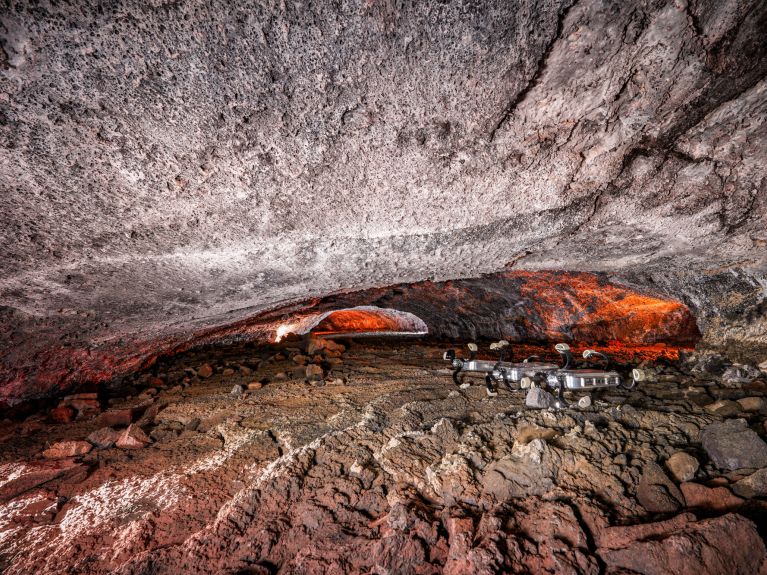Robot for the mission to Mars
Caves on Mars could contain evidence of life. To be able to explore these in the future, the German Aerospace Center has been testing a new rover.

Researchers believe that there could be large lava caves on Mars, which might contain traces of life: “Being underground they are protected against environmental impact,” explains Dr Roy Lichtenheldt, project leader at the German Aerospace Center. He and his team are working on the so-called Scout Rover, a robot that is designed to autonomously move through and explore extraterrestrial caves. The terrain in question is extremely challenging, and mobile robots have rarely been used in that type of environment to date. “We have to anticipate sudden obstacles, such as narrow passages and high ledges. This is why we have designed the rover to easily survive falls,” Lichtenheldt says.
Where does testing of the Scout Rover take place?
Before the rover is sent on an actual space mission, it is carefully tested in underground caves and steadily advanced. Following tests in caves in Bavaria, further simulations took place in a natural lava cave on Lanzarote in 2024. Roy Lichtenheldt's team found this setting particularly interesting: “Lava tubes, which are caves that form when lava flows cool down, exist on Mars and on the moon, too. Planetary researchers assume that the conditions on Mars and Moon are similar to those on Earth.” That makes them ideal as a testing environment. Planning provides for the rover to be ready for its mission and take off for Mars in the early 2030s.
Does it make sense to use the Scout Rover on Earth, too?
The Scout Rover can be a useful tool, also on Earth: it is to be used in emergency response, for example for finding missing persons or examining sources of wildfires. Until the rover can unfold its full potential, project leader Lichtenheldt appreciates the positive interim results: “A particular moment of success was when the Scout moved around a cave fully autonomously for the first time, and managed to find its way. That was an impressive achievement of the team.”




